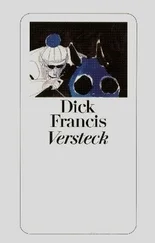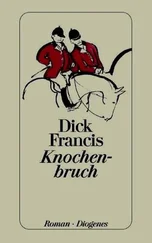They had been watching the race from the stands and they were just getting excited about the prospect of another famous win when Sandeman and I had so spectacularly disappeared in a flurry of legs, and then we had both lain prostrate and unmoving on the turf.
Paul, it seemed, had run the half-mile from the grandstands, down the course, to where we had both been hidden from the sight of the thousands of spectators behind hastily erected green canvas screens. Sandeman, it appeared, had been badly winded and had also damaged his back. He had taken a full fifteen minutes to get gingerly to his feet and only Paul’s personal intervention had prevented the racecourse vet from putting him down there and then. Fortunately for me, no questions had been asked about whether or not to shoot the jockey. Paul told me that I had been lying on the turf being attended to by the paramedics and the racecourse doctor for nearly an hour before being lifted ever so carefully into an ambulance and driven away at a snail’s pace. The following race had been required to bypass the fence and was nearly abandoned altogether.
‘There was someone else down there as well,’ he had said. I had thought he must have meant Julian Trent but I’d been wrong. ‘Agirl. Ran all the way down the course in high-heeled shoes. Nice looker. Called herself Eleanor. Do you know her?’
I’d nodded to him.
‘She seemed a bit cut up about you,’ he’d said, almost surprised. ‘I thought she must have the wrong guy but she was certain it was you. She said she had met me before at that do at Newbury in December but I don’t remember.’
‘What happened to her?’ I’d asked him.
‘I think she went in the ambulance with you but I don’t know. I was so busy trying to get Sandeman sorted out.’
‘How is he?’ I’d asked him.
‘Not great,’ he’d said. ‘He was taken straight to the equine hospital in Lambourn. They are treating him for a badly strained back and severe bruising.’
I’d laughed at him. ‘Eleanor is a vet at that hospital.’
‘What a coincidence,’ he’d said laughing back.
But I didn’t like coincidences.
‘I think that cast can come off your leg,’ said the orthopaedic surgeon. ‘The X-rays show the knee mending well and there’s no reason why it needs to be immobilized any longer. How long is it now?’
‘Seven and a half weeks,’ I said.
‘Mmm,’ he pondered. ‘Should be fine, but you will need to keep using the crutches and just put a little weight on it for a while. Build up the weight over the next few weeks.’
‘What about my back?’ I asked him.
‘The scans show that the bones are mending slowly but you still need to keep that straightjacket on for another six weeks at least.’
He was referring to the hard white plastic shell that I wore to prevent me bending my back. The damned thing reached from just below my neck almost to my groin in the front and from my shoulder blades to the top of my buttocks behind. It was very uncomfortable and made sitting at a desk near impossible, but wearing it had at least allowed me to walk around. Without it I would probably still be lying flat on my back.
‘Six weeks?’ I said in exasperation.
‘You broke the T10, T11 and T12 vertebrae right through and you don’t want to finish now what your fall started,’ he said. ‘You are a very lucky man. With that injury you could have so easily been paralysed, or dead.’
I would just have to put up with the discomfort, and the ignominy of having to ask my downstairs neighbour to come and help me get out of the wretched thing at night and back into it in the morning. The shell was actually made in two halves that had been heat moulded to fit my torso exactly, the two parts being held together round my upper body by half a dozen Velcro-covered nylon straps that needed to be fed through metal loops and pulled tight. I even had to shower in the damn thing.
The surgeon inspected the device before I gratefully hid it again from sight beneath my shirt.
‘It’s damned uncomfortable, you know,’ I said to him. ‘It makes me itch all the time.’
‘Better than being paralysed,’ he replied.
And there was no answer to that.
‘How’s the head?’ he asked. It wasn’t technically his department.
‘Getting better slowly,’ I said. ‘I saw the neurologist last week and he is happy with my progress, but I still have some headaches.’
‘Do you still have the valve implant?’ he asked.
‘No,’ I said putting my hand up to my right ear. ‘He took it out four weeks ago now.’
‘No problems?’ he asked.
‘A little dizziness at first,’ I said. ‘But that went after a couple of days. No, I feel fine, just a few headaches and they are getting more infrequent and less troublesome.’
‘Good,’ he said looking down and making some notes.
‘When can I start riding again?’ I asked him.
He stopped writing and looked up. ‘Are you serious?’
‘Absolutely,’ I said.
He put his pen down and looked at me with his head inclined to the side. ‘Well, I suppose from my point of view, all your bones will heal and they’ll be as good as new in a few months, but I would be worried about your head. The brain can only take so many knocks like that.’
I had to admit that it had been quite a bang. I had seen what was left of my racing helmet and it was cracked right through from front to back. Without it, I would have certainly died.
‘But I don’t intend to ever land on my head again,’ I said.
‘No one intended there to be a second world war after the first one. But there was.’
‘That’s a bit different,’ I said.
‘OK,’ he conceded. ‘But you should never try to predict the future.’
I knew that well enough. Especially in the law.
When I returned to chambers later that afternoon I felt I was walking on air, albeit with only one leg. In spite of the fibreglass and polyurethane material being much lighter than the old-fashioned white plaster of Paris, the full-length cast had still been very heavy and annoyingly restrictive. Without it, I felt at least partially released from the cage in which I had been existing.
The surgeon had told me that I would need lots of physiotherapy to get the knee back to full movement, and I still had to walk using the crutches, but it was such a joy to once again scratch an itch in my thigh, or to rub away an ache in my kneecap.
Arthur looked up at me from his desk as I hopped my way through the clerks’ room. ‘On the mend, I see,’ he said.
‘Slowly,’ I agreed. ‘I still have to wear this body armour for another six weeks.’ I tapped the hard shell beneath my shirt.
‘Still need the recliner then?’ he said, smiling.
He referred to the new chair I had acquired from a friend that sat behind my desk. It allowed me to lean right back and reduce the pressure that the shell made on my groin.
‘I might just keep it anyway,’ I said to him with a laugh. He had found me asleep in the chair two or three times when I had first returned to chambers about three weeks previously.
‘There’s another one of those hand-delivered envelopes in your box,’ Arthur said, immediately wiping the smile from my face. ‘It came while you were out.’
‘Right,’ I said. ‘Thanks.’
Arthur looked me in the eye and I thought for a moment that he was going to ask me straight out what was in the envelope, but he didn’t, instead returning his attention to something on his desk.
I went over to the boxes and looked into mine. I had been temporarily promoted to the top row as I was unable to bend down to my usual level, and there, on its own, was a slim A5-sized white envelope, just as before.
I was sure that Arthur was watching me so I picked it up casually and stuffed it into my trouser pocket before negotiating the corridor on my crutches to the safety and privacy of my room. Thankfully, the two others junior barristers who also shared this space with me were both away in Manchester acting for a big local football club that was up to its neck in a taxevasion scandal involving half a dozen of their most highly paid players.
Читать дальше












